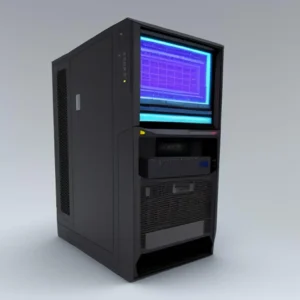Unleashing the Power: Key Features of Mainframe Computers
Mainframe computers are powerful systems known for their ability to process massive amounts of data, host complex applications, and perform intense computational tasks. These machines are typically used by large-scale organizations, such as banks, government agencies, and corporations, due to their high processing power, reliability, and unmatched security. In this article we will learn features of mainframe computer.
Key Features of Mainframe Computers
Here are some most important features of Mainframe Computers:
-
Massive Processing Power and Scalability
-
High Availability and Reliability
-
Advanced Security Features
-
Virtualization and Partitioning Capabilities
Massive Processing Power and Scalability
One of the most noticeable features of mainframe computers is their incredible processing power. They can handle vast amounts of data and execute billions of transactions in a short time frame. This computing prowess is due to their architecture that includes multiple high-grade processors working parallelly.
Mainframe computers also offer scalability, allowing organizations to add more power processors, memory modules, and storage devices as the need arises. This feature ensures that the mainframe system can keep up with the growing data and transaction volumes.
High Availability and Reliability
Mainframe computers are designed for continuous operation, boasting an impressive uptime that can exceed 99.999%. They can run for years without interruption, making them ideal for sectors where downtime can be costly, such as banking, airlines, and e-commerce.
The reliability of mainframe systems is further enhanced by their self-healing capabilities.
Advanced Security Features of Mainframe Computers
Security is a paramount concern for any organization. Mainframe computers offer robust security features, including advanced authentication mechanisms and data encryption, protecting sensitive information from external threats effectively.
For more details visit Unleashing Power Reliability and Security
Virtualization and Partitioning Capabilities
Mainframe computers can be divided into smaller logical segments, allowing different applications or operating systems to run on the same physical machine. This feature, known as virtualization, eliminates memory limitations and improves computing performance.

Types of Mainframe Computers
Several types of mainframe computer develop over the year, each with its unique features and capabilities. These include:
ENIAC
The ENIAC (Electronic Numerical Integrator and Computer) was the first electronic general-purpose computer. It was used to compute artillery firing tables for the United States Army during World War II.
UNIVAC
The UNIVAC (Universal Automatic Computer) was the first commercial computer produced in the United States. It’s use for a variety of application, including scientific research and business data processing.
ASCC
The ASCC (Automatic Sequence Controlled Calculator), also known as the Harvard Mark I, was a large electromechanical computer. The machine use to solve complex mathematical problem and served as a pivotal development in the evolution of computing.
Applications of Mainframe Computers
Mainframe computers find applications in numerous sectors, including:
Finance and Banking
Financial institutions use mainframes for processing transactions, managing accounts, and analyzing financial data.
Healthcare
Mainframe computers can handle large amounts of patient data, making them ideal for use in healthcare institutions.
Government and Defense
Government agencies and defense organizations use mainframes for various purposes, ranging from data analysis to mission-critical operations.
Scientific Research
Mainframes use in scientific research for complex calculations and simulations.
Mainframe Architecture and Components
Mainframe computers comprise several components that work together to deliver high performance. These include:
CPU
The Central Processing Unit (CPU) is the brain of the mainframe computer, carrying out most of the processing inside the computer.
Input/output (I/O) Subsystems
These subsystems handle the communication between the mainframe computer and its external environment, such as users, storage devices, and network interfaces.
Memory and Storage Systems
Mainframe computers have large memory and storage capacities to handle vast amounts of data.
Operating System and Middleware
The operating system manages the computer’s resources, while middleware provides services to the applications running on the mainframe.
Advantages and Disadvantages of Mainframe Computers
Get to know advantages and disadvantages of Mainframe Computers in detail:
Advantages
Mainframe computers offer several advantages, such as high processing power, scalability, reliability and advanced security features. They also allow for the simultaneous execution of multiple programs and support a large number of users.
Disadvantages
Despite their benefits, mainframe computers also have some disadvantages. They are costly and require a large physical space and a controlled environment for operation. Mainframes also require specialized staff for maintenance and operation.
Conclusion of Features of Mainframe Computers
Mainframe computers have been a critical part of IT infrastructure for decades. They continue to be relevant in today’s digital age due to their power, reliability, and security. As data volumes grow and computational needs become more complex, mainframe computers will continue to play a pivotal role in many sectors.
| If you are reading features of mainframe computers then also check our other blogs on various blogs: | |||
| Difference between Desktop and Monitor | All in One Desktop | ||
| Difference between Mainframe computer and Personal computer | Difference between Computer and Brain | ||
| Features of Supercomputers | Analog computer vs Digital computer | ||
